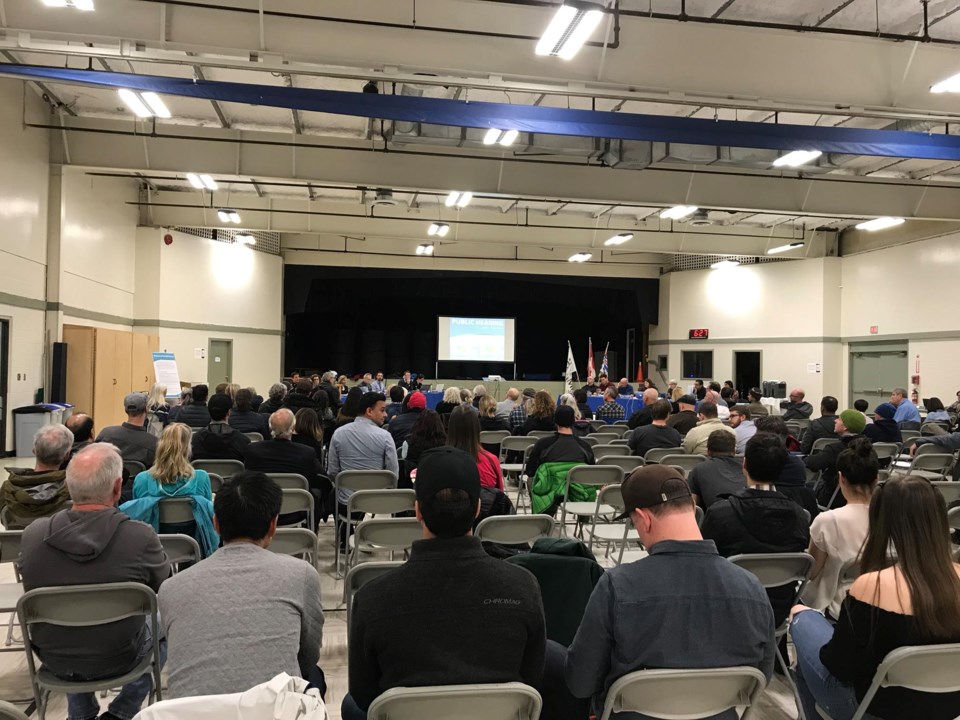Attendance at the public hearings for the Official Community Plan was high, but council won’t make any decisions about changes to the document until it returns to council for third reading.
Residents spoke their minds on Monday and Tuesday evenings at sessions hosted at Brennan Park.
More than 100 people attended on both nights, and opinions among speakers were diverse.
Some residents said they were concerned about affordable housing, employment lands and traffic and thought new builds would be a solution. Other speakers gave impassioned speeches about what they saw as excessive growth in Squamish and their reluctance to increase density.
A number of residents came out to raise concerns about the OCP in relation to areas that have been in the news recently, including the Cheema lands, Hospital Hill, Garibaldi Springs and the BC Rail lands located at the end of Bailey Street.
Margaret King, one of the speakers concerned about the BCR lands, expressed anger with developers targeting the area.
“Real estate developers are one voice in this community, but they are only one voice,” said King. “They’re here for the feeding frenzy. They make promises of amenities, but they’re not here to rescue us from our affordable housing problem.”
Her comments were met with cheers and a whistle, although the audience was asked to remain quiet.
Particularly on Tuesday evening, residents and mountain biking leaders came forward to support development on the Cheema lands. The current version of the OCP restricts growth in the area with multiple conditions.
“We think we’ve developed and come up with a plan that is quite sensible,” said SORCA chair Jeff Cooke, asking councilors to consider dropping some of the restrictions on the trail network area.
Cooke announced March 9, he had signed a memorandum of understanding with developer Bob Cheema.
A number of speakers also raised concerns about building on the BC Rail lands, although the current OCP does not allow residential development in the area.
Many of the speakers thanked staff for their work on the document and praised the protection of natural resources and trails, even when giving their criticisms.
The document will now return to council, where district councillors will vote to approve the current document or suggest further changes based on the public hearing comments.
If approved, it will go to the SLRD for approval before final adoption.
If council votes to send the OCP back for further changes it will trigger another Public Hearing process.



